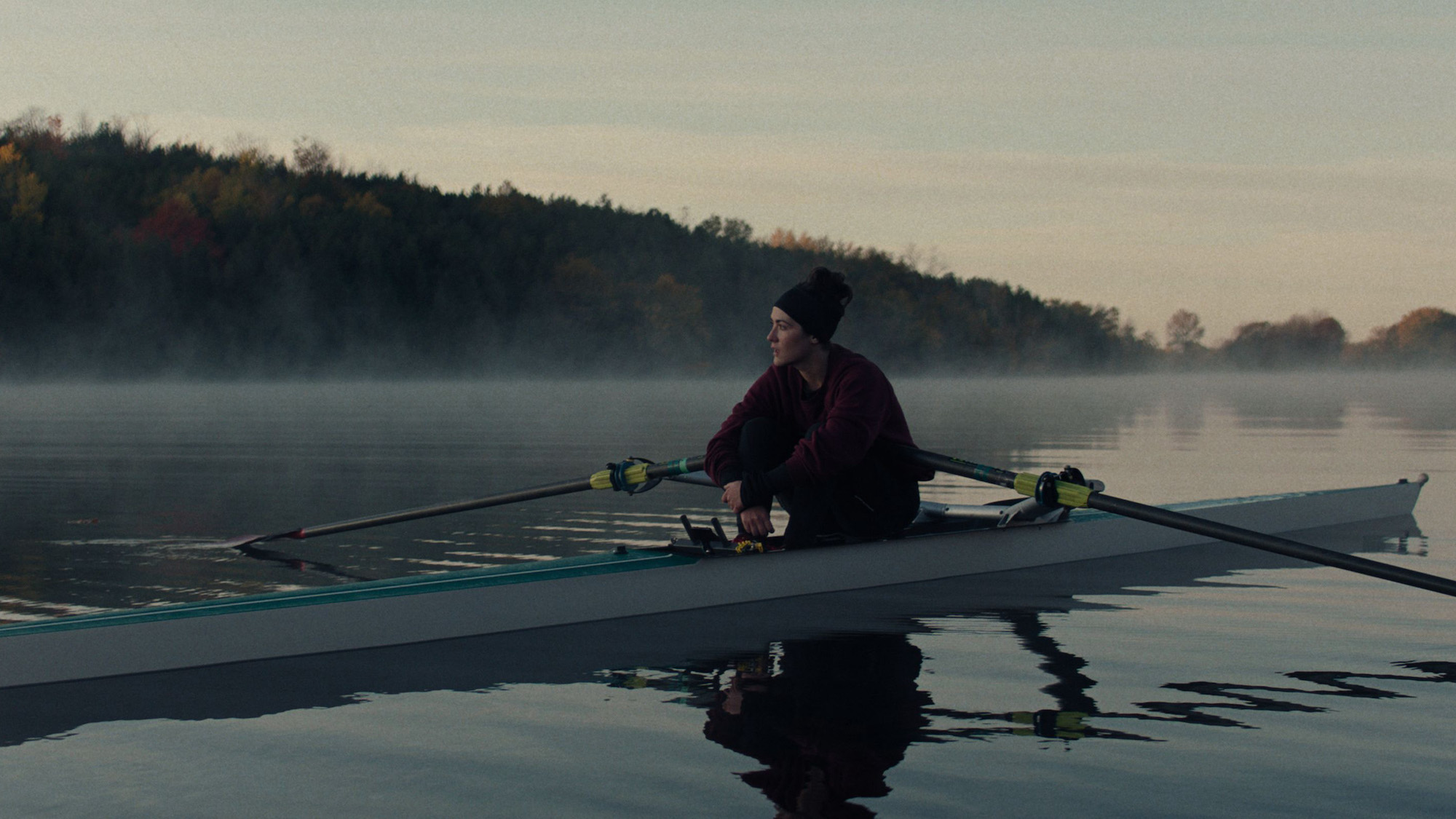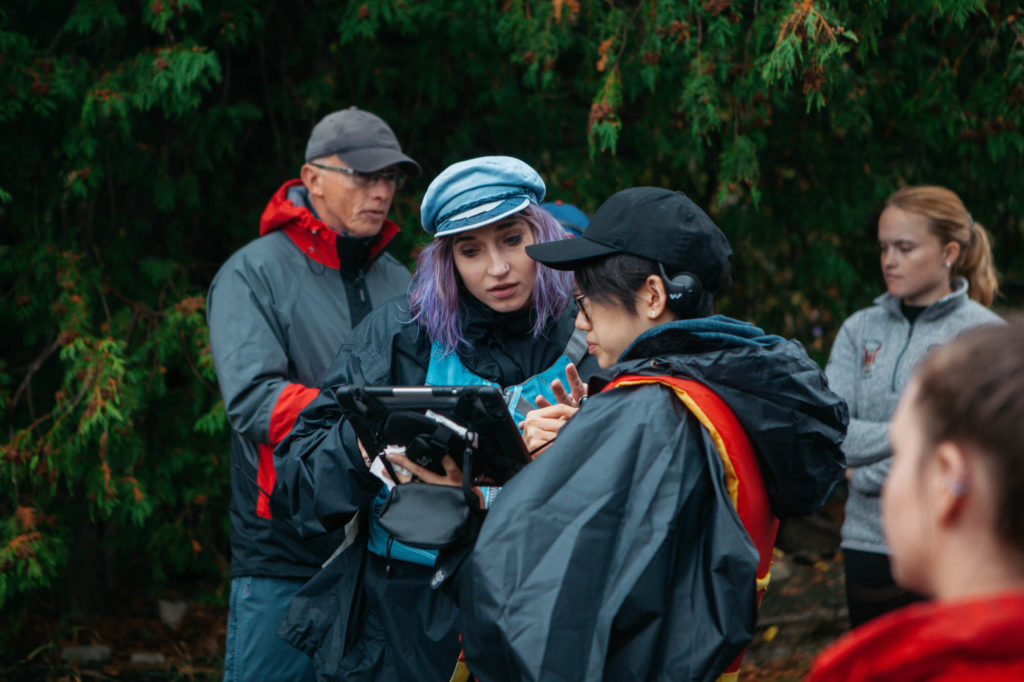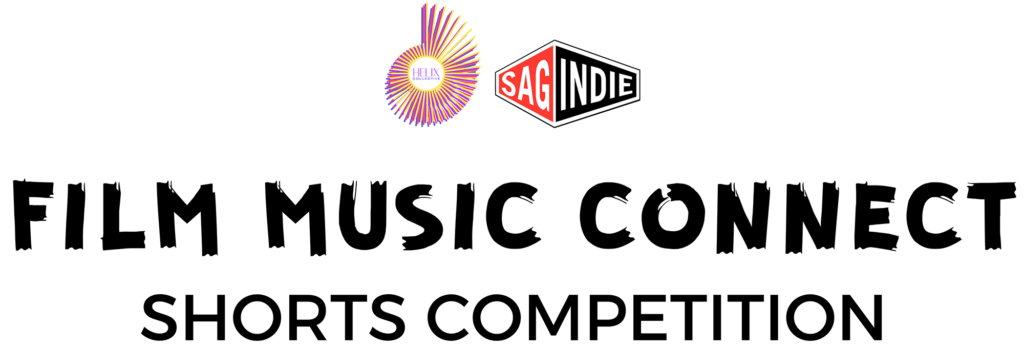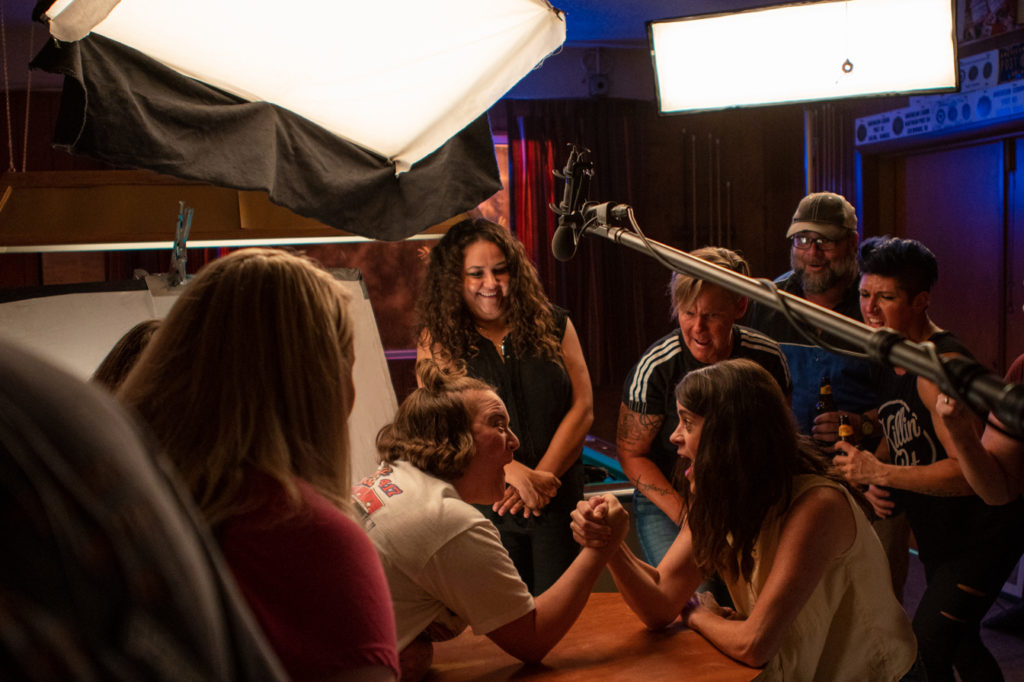Before she began directing her own work, LAUREN HADAWAY helped shape how some of the past decade’s biggest movies sounded. As an ADR and sound supervisor, editor, and mixer, Hadaway worked on such massive projects as Pacific Rim, Transformers: Age of Extinction, and Justice League. But amidst the blockbusters, she also had a hand in auteur-driven Oscar-winners like Whiplash, Selma, and The Hateful Eight. Simultaneously, she developed her craft as a storyteller, eventually landing as an Outfest Screenwriting Lab Fellow in 2018.
For her directorial debut, Hadaway tapped into her experience as a Southern Methodist University rower to make THE NOVICE, centering on Alex Dall (Isabelle Fuhrman) as she strives to climb the ranks of her university crew team, pushing herself to her mental and physical limits. The Novice premiered at the 2021 Tribeca Film Festival, where it went on to win awards for Best US Narrative Film, Best Cinematography, and Best Actress. IFC Films will release The Novice in theaters and On Demand on December 17.
We got the chance to speak to writer/director/editor Lauren Hadaway about making her first film, transitioning from sound to directing, and the wild experience of filming a movie on the water.
——
COLIN McCORMACK: You were a rower in college. When you were deep in it – while also majoring in film – were those worlds completely separate to you or did you already think there’s something here in this [crew team] that could make for a compelling film?
LAUREN HADAWAY: No, not at all. The funny thing is, actually working in film and making movies didn’t really click with me, I don’t think. It never occurred to me to even move to Los Angeles until after I had graduated from university. I’m from a small, podunk, redneck town and I never thought I’d even leave the country. I think for me, both rowing and film in college were extremely demanding things. And I – like Alex Dall – am very driven academically, and with rowing even though I’m not a born-and-bred rower, I’m not the most coordinated person, I was always the second-to-worst person on every team. But in rowing, you’re strapped in, you have to do the same thing over and over, so there’s something about it. There’s a mental mindfuck aspect. I was rowing on a Division 1 team, we were doing twenty hours a week, two-a-days, six days a week, up at five A.M. I was double-majoring because I thought I’d never work in film, taking 18 hours [of courses]. I was interning. But it never actually occurred to me to do a story about it.
I always assumed I would be a writer in the sense that I’d be a novelist and I was thinking about a novel to write about rowing or something related to it. It wasn’t until I made the decision in November of 2016 – I set a five-year goal to transition out of my first career in sound into writing and directing – that I was really like, What can be my first story? What’s a story only I can tell the right way? All the cliche advice you’re given. The themes of grit and ambition are things that I really relate to. And then the rowing; there aren’t a lot of rowing movies, for a variety of reasons. There just aren’t. So that was when it finally solidified like, Wow, I had these traumatic four years I can write about that has not really been done that much. So that’s where that came from.
CM: Going back to the beginning of your career when you were working in sound, what led you down that career path?
LH: It was almost a happy accident. I saw Kill Bill when I was 15 and that film made me want to be a director. When I went to college, I was immediately hit with what I know now as “imposter syndrome.” It was mostly dudes and a lot of big-city kids – again, I was a redneck – and everyone seemed to have all the fancy cameras and editing software and all these short films and they all seemed so cool and confident. I thought, Well I can’t be a fucking director, no way. But I loved editing and in high school, I saved up my money to buy some hundred-dollar shitty editing program and I’d loved that. So I started taking these post-production classes and in that, by chance, one of the professors who taught the sound class showed some clip the sound class was doing where they removed all the sound from a clip of a movie and re-did it themselves. I thought that was the coolest thing ever. So I immediately took that class the next semester and took every single sound-related class that I could and even did an extra [independent] study thing. That became my focus.
I did an internship on it and tried to get a job – so glad in hindsight it didn’t work out – at this place I was interning to do an audio assistant job. They had an opening, but they didn’t hire me so I ended up picture cutting in reality TV, which ended up being fortuitous because I was able to get into the union that way. When I moved to LA, my first thing in LA I was able to get into the Editors Guild. So I started calling up all the people who had been like, “Call me when you get out here and into the union, kid.” Which is basically like a, “Fuck off,” or “Get lost.” But I did and was like, “Hey, I’m in LA and I’m in the union!” And the voice on the other end says, “Uhhhh… well…” Like, Wow she actually did it. This never happens. [Laughs] But it got me into the door and got me an internship, so it all worked out.
CM: You mentioned that in November 2016 you made the five-year plan. When you have a steady gig, it can be easy to settle into that comfort and that reliable stream of income. What motivated you to take the plunge in trying to get The Novice made?
LH: I think for me, the self-awareness that I have is that I always need to be building, whether in a relationship, with myself, my career. I set these two goals in my sound career and when I set them they seemed ridiculous. One was to work on a Tarantino film, which I did when I was 25, I worked on The Hateful Eight. The other was to supervise sound on theatrical features by the time I was 30. I’m a very goal-oriented person. And I was 26 or 27 when I was hired on Justice League, which was a huge film. I’d worked on these other big projects and was taking these leading roles and I realized, Wow, I think I could hit my second goal within a couple years. And I was hit with this realization of, Then what? For the rest of my life, am I going to be doing the same thing? I truly love sound, I love it so much and want to drag it with me all the way to the finish line, but it’s always going to be someone else’s baby. Someone else’s story. And being a little redneck kid, you have this image of Hollywood where everyone’s a creative genius and fucking brilliant and I couldn’t compete, I couldn’t possibly do it. Then you work in the industry and realize most people are just good, decent people working hard. They make mistakes, they don’t know what they’re doing. There are a couple of creative geniuses, sure, but there are also a fuckload of idiots. All that congealing together made me think, Maybe I can do this. I have to at least try. It was then or never. I had the savings from my first career to live off of and be a bum for a while. It was definitely a risk, but I think it’s paid off. Knock on wood.
CM: What were those first steps in reaching out to producers or people you thought could help you carry it over the finish line?
LH: First was the writing aspect. And I’d been a closeted writer. Coming out as gay was not as difficult for me as coming as a writer in Los Angeles [laughs]. Admitting you want to write and everyone’s like, [Scoffs] “Oh, really? You too, huh?” But I’d been writing novels and things forever. I have novels in drawers no one will ever read, I have half-finished things and things I’m actually now turning into series or films that I was writing then. So I’d been “closet writing” and when I made the decision to do the filmmaking thing, I put the novel-writing on hold and worked on this screenplay. I wrote this in July 2017. I was actually in the UK for the Justice League reshoots, I was doing ADR there, waiting for the actors to come in between shooting scenes. We were like patch-working the film together and I had all this time on my hands, so that’s when I wrote the first draft of the script in this three-week period.
I had one friend who I talked to about writing and I tentatively gave it to him and his response was very encouraging. Then I put it on the Black List to just get some unbiased feedback and it did well there. Then too, anyone who’s been a writer or creator, you know the difference between feedback that’s polite feedback or enthusiastic feedback. Until you get that enthusiastic feedback, you don’t know the difference, but once you see it, you’re like, “Oh fuck, this is it.” So that gave me confidence. One of my producers, Zack Zucker – he’s my manager now, actually, but at the time he was getting into producing – he started pursuing me doggedly from the Black List. And I liked his energy and he seemed gung-ho and kept checking in on me and kept being persistent and he was interested. Then the other producer was Ryan Hawkins, I knew him from school, we went to SMU together. He had produced a low-budget indie that I had done the post sound for, so I sent him the script too. He read it and I said, “You and Zack should meet,” because I thought the two of them balanced each other nicely. Ryan’s very on-the-ground and indie and in-the-trenches and gets dirty, and Zack gets focused on story and the big picture and the agency world. I thought the two of them would be a good thing. So it was this slow unveiling. I did the work and then sort of pushed it a little bit at a time.
CM: Obviously, any film or scene has prep work involved. But when it comes to Isabelle and the actors having to look convincing [as rowers], filming scenes in boats, being on the water, how much of a headache or how intimidating and crazy was all that?
LH: It was very crazy. This is an ambitious first film. My first week as a director was water week. I didn’t come from a background of doing tons of music videos and commercials and short films, I didn’t have that. I was going from post sound into, Now I’m on the fucking water. [I had] an idea of the equipment we would have, then I walk on set and see all this shit and all these crew and I’m like, “Holy fuck, this is like a real film!” [Laughs] “Holy shit, we’re doing it.” But I didn’t really have time after the initial jitters of the first day, it was immediately in the trenches. No one on the crew – besides the DP Todd [Martin], who had rowed a month or two his freshman year of high school – no one else knew anything. We had the rowing coaches at the school, who were brilliant and super helpful. But I had a walkie-talkie, a blow-horn, then those get soaking wet and I’m screaming. I’m hoarse and there are tons of boats and the final race we shot over three days. And the city had opened the fucking dam and they didn’t tell us they were doing it, so all these boats were getting sucked down. [We had] all these singles that the actors were in and Isabelle and Amy [Forsyth] had only been rowing for a couple of months. If they flip – and they’re extremely easy to flip – it would take hours to reset, we’d be fucked. The film wouldn’t be done. That was the anxiety. You had the five boats with the actors. Then you had the camera boat, the sound boat, the light boat, the safety boat, the taxi boat, the houseboat, so there are a dozen boats all in this tiny area, getting sucked down the motherfucking river and I’m just like, “Oh my God!” It was a clusterfuck.
Todd – the DP – and I, the very first thing we shot was the foggy row, which is halfway through the film. It’s this beautiful scene and it was perfect; it was exactly like what was in my head, the light, the fog, everything was just gorgeous. I was like, I am so meant to be a director. I am brilliant. I am God. This is going to be a fucking piece of cake. This is easy! And by that afternoon I was like, Oh my God, are we ever going to finish this film? But me and Todd rallied together. I had found this quote from Damien Chazelle from 2013 or 2014 about making Whiplash that was sort of my gospel. He said that making Whiplash every day felt like walking a tightrope between something really beautiful and utter crushing disaster. And I thought, “Great! I am right on track.” Someone’s been here before me and that sort of re-contextualized the doom and gloom I was in.
Me and Todd would sit down before those water days – especially with the final race – and figure out exactly what we needed and made a list of, We need the camera to go from here to here. We need to see the boat enter frame here. Exactly what we needed. When we got that, we moved the fuck on. No double-checking, no backup, we didn’t have time for it. And when we finished shooting that, that was the one scene where I was like, “Guys, I don’t know if we got everything, to be honest.” [Laughs] When we were editing it, it was a nightmare. Like there’s one take of things and if you go one frame in either direction it’s unusable. It was precise. But we did it! It was tough.

CM: Now that you’ve sort of accomplished the unthinkable with your first film, does it feel like you can do anything?
LH: It’s funny, I finally feel recovered from having shot this film and the post-production. I did a lot of post in my kitchen during the pandemic. Like, my roommate’s making sausage behind me and I’m figuring out what this movie is on my laptop and the world is ending. I survived that and I survived shooting this, so yeah, I think the big thing I took away from it – and this is true with my career in sound – is every film is going to feel like a disaster. Everything’s going to go wrong, but the thing I think that makes people successful is you have to be able to adapt to the changes and the challenges. You don’t have to know everything, you just need a talented crew. So going forward, I know I can’t do everything; I know I can go into a scenario and if I have the right people, ask the right questions, and don’t totally have a panic attack, perhaps I’ll be able to do a lot.
__
Thanks to Lauren for talking with us about THE NOVICE. Learn more about the film at novicemovie.com.
This interview has been edited for clarity.
If you’re an independent filmmaker or know of an independent film-related topic we should write about, email blogadmin@sagindie.org for consideration.




